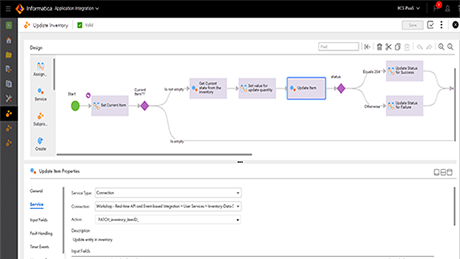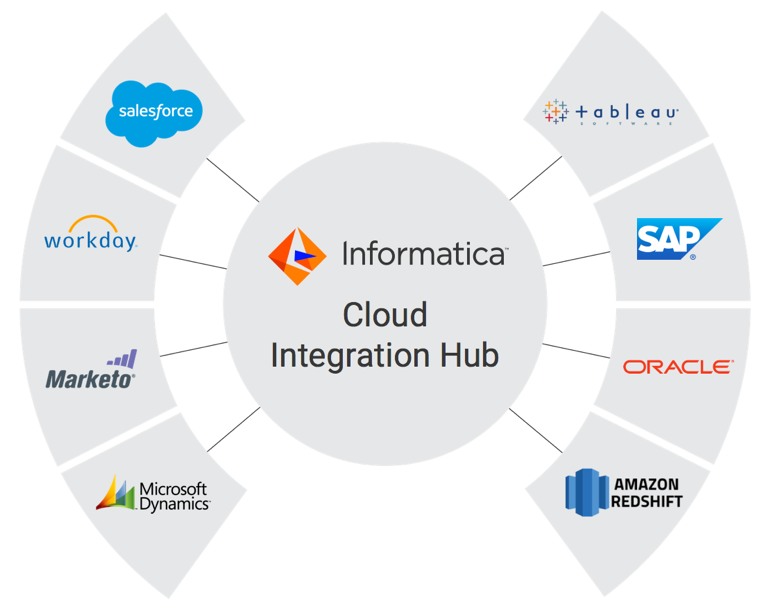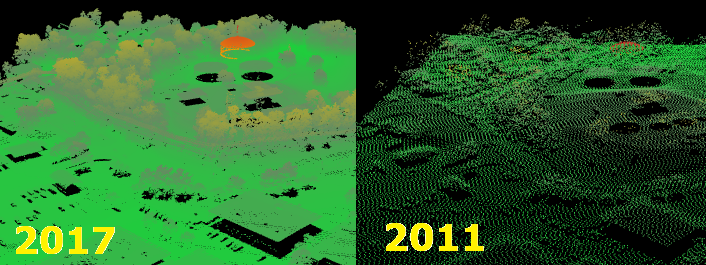As technology evolves, the amount of data generated by businesses increases exponentially. This data needs to be organized, processed, and utilized effectively to gain insights and make informed decisions. This is where Informatica Cloud Data Integration comes in.
Informatica Cloud Data Integration is a cloud-based data management solution that allows businesses to integrate, transform, and manage data across different platforms and applications. It enables organizations to connect to various data sources, including cloud-based and on-premises systems, and consolidate them into a single, unified view. With Informatica Cloud Data Integration, businesses can streamline their data management processes, reduce complexity, and ensure data accuracy, speed, and security. In this article, we will dive deeper into what Informatica Cloud Data Integration is, how it works, and how it can benefit your business.

What is Informatica Cloud Data Integration?
Informatica Cloud Data Integration is a cloud-based data integration platform that enables businesses to quickly and easily connect, integrate and transform data from various sources. It is an enterprise-grade solution that helps organizations manage and move data in an efficient and secure way. The platform offers a range of features and services to meet the needs of organizations of all sizes.
Features of Informatica Cloud Data Integration
Data Connectors
Informatica Cloud Data Integration offers a range of data connectors to quickly and easily connect to a variety of data sources. It supports a wide range of data sources including databases, files, applications, and cloud storage. It also supports a range of data formats including CSV, JSON, XML, and others. The platform enables users to quickly and easily connect, integrate, and transform data from these sources.
Data Transformation
Informatica Cloud Data Integration provides a range of features to help with data transformation. It enables users to quickly and easily transform data from one format to another, cleanse and enrich data, and perform calculations and conversions. The platform also offers a range of features to help with data manipulation, including sorting, filtering, and aggregation. It also offers a range of data cleansing and enrichment features, such as scrubbing, deduplication, and normalization.
Data Movement
Informatica Cloud Data Integration enables users to move data quickly and securely from one source to another. It offers a range of features to help with data movement, including scheduling, data replication, and load balancing. The platform also offers a range of features to help with data synchronization, including conflict detection and resolution, and data encryption.
Data Analytics
Informatica Cloud Data Integration provides a range of features to help with data analytics. It enables users to quickly and easily analyze data from any source. The platform offers a range of features to help with data analysis, including data visualization, reporting, and dashboards. The platform also offers a range of features to help with data mining, including predictive analytics and machine learning.
Data Governance
Informatica Cloud Data Integration provides a range of features to help with data governance. It enables organizations to quickly and easily manage and control data across the entire organization. The platform offers a range of features to help with data governance, including data security, auditing, and compliance. It also offers a range of features to help with data privacy and protection, including access control and data masking.
Data Quality
Informatica Cloud Data Integration provides a range of features to help with data quality. It enables organizations to quickly and easily identify and fix data quality issues. The platform offers a range of features to help with data quality, including data profiling, data validation, and data monitoring. It also offers a range of features to help with data cleansing and enrichment, including scrubbing, deduplication, and normalization.
Integration with Other Applications
Informatica Cloud Data Integration enables organizations to quickly and easily integrate with other applications. It offers a range of features to help with application integration, including API integration, web services integration, and messaging integration. The platform also offers a range of features to help with application development, including code generation, testing, and deployment.
Real-Time Data Processing
Informatica Cloud Data Integration enables organizations to quickly and easily process data in real-time. It offers a range of features to help with real-time data processing, including streaming data processing, event processing, and data streaming. The platform also offers a range of features to help with data integration, including data synchronization, replication, and replication scheduling.
Scalability
Informatica Cloud Data Integration provides a range of features to help with scalability. It enables organizations to quickly and easily scale up or down their data integration needs. The platform offers a range of features to help with scalability, including cloud scalability, elastic scalability, and high availability. It also offers a range of features to help with performance, including resource isolation and automatic scaling.
Frequently Asked Questions
Informatica Cloud Data Integration is a powerful cloud-based data integration platform that enables organizations to quickly move, transform, and sync data between on-premises and cloud applications and databases.
What is Informatica Cloud Data Integration?
Informatica Cloud Data Integration is a powerful cloud-based data integration platform that enables organizations to quickly move, transform, and sync data between on-premises and cloud applications and databases. This platform provides users with an easy-to-use and cost-effective way to integrate cloud-based and on-premises applications, databases, and other sources of data. The platform is designed to be flexible and easy to use, allowing users to quickly integrate data from a variety of sources and destinations.
Informatica Cloud Data Integration provides users with a wide range of features and capabilities, such as data transformation, data mapping, data replication, data synchronization, and data visualization. These features allow users to quickly and easily integrate data from a variety of sources and destinations, including databases, applications, files, and other sources. Additionally, the platform provides users with a secure and reliable platform for managing and monitoring their data integration processes.
What are the benefits of using Informatica Cloud Data Integration?
Informatica Cloud Data Integration provides users with a number of benefits, including increased efficiency, reduced costs, and improved accuracy. By using Informatica Cloud Data Integration, users can quickly and easily move, transform, and sync data between cloud-based and on-premises applications and databases. This platform allows users to quickly integrate data from a variety of sources and destinations, including databases, applications, files, and other sources. Additionally, the platform provides users with a secure and reliable platform for managing and monitoring their data integration processes.
In addition to the increased efficiency and cost savings, Informatica Cloud Data Integration also offers users improved accuracy. This platform provides users with a wide range of features and capabilities, such as data transformation, data mapping, data replication, data synchronization, and data visualization. These features allow users to quickly and accurately integrate data from a variety of sources and destinations. Additionally, the platform is designed to be flexible and easy to use, allowing users to quickly and easily integrate data from a variety of sources and destinations.
What kind of data sources can be used with Informatica Cloud Data Integration?
Informatica Cloud Data Integration can be used with a variety of data sources, including databases, applications, files, and other sources. This platform is designed to be flexible and easy to use, allowing users to quickly and easily integrate data from a variety of sources and destinations. Additionally, the platform provides users with a secure and reliable platform for managing and monitoring their data integration processes.
In addition to being able to integrate data from a variety of sources, Informatica Cloud Data Integration also provides users with a wide range of features and capabilities, such as data transformation, data mapping, data replication, data synchronization, and data visualization. These features allow users to quickly and accurately integrate data from a variety of sources and destinations. Additionally, the platform is designed to be flexible and easy to use, allowing users to quickly and easily integrate data from a variety of sources and destinations.
What are the security features of Informatica Cloud Data Integration?
Informatica Cloud Data Integration provides users with a secure and reliable platform for managing and monitoring their data integration processes. This platform provides users with a wide range of security features, such as authentication and authorization, encryption, data masking, and audit logging. Additionally, the platform is designed to be secure and reliable, providing users with a secure and reliable platform for managing and monitoring their data integration processes.
In addition to the security features, Informatica Cloud Data Integration also provides users with a wide range of features and capabilities, such as data transformation, data mapping, data replication, data synchronization, and data visualization. These features allow users to quickly and accurately integrate data from a variety of sources and destinations. Additionally, the platform is designed to be flexible and easy to use, allowing users to quickly and easily integrate data from a variety of sources and destinations.
What kind of support does Informatica Cloud Data Integration provide?
Informatica Cloud Data Integration provides users with a wide range of support options, including online documentation, user forums, and customer service. Additionally, the platform is designed to be easy to use, allowing users to quickly and easily integrate data from a variety of sources and destinations. Additionally, the platform provides users with a secure and reliable platform for managing and monitoring their data integration processes.
In addition to the support options, Informatica Cloud Data Integration also provides users with a wide range of features and capabilities, such as data transformation, data mapping, data replication, data synchronization, and data visualization. These features allow users to quickly and accurately integrate data from a variety of sources and destinations. Additionally, the platform is designed to be flexible and easy to use, allowing users to quickly and easily integrate data from a variety of sources and destinations.

In conclusion, Informatica Cloud Data Integration is a cutting-edge platform that provides organizations with a comprehensive solution for integrating, synchronizing, and managing data across multiple systems, applications, and databases. With its user-friendly interface, robust features, and flexible deployment options, Informatica Cloud Data Integration has become a go-to choice for enterprises of all sizes that are looking to streamline their data management processes, gain deeper insights into their operations, and achieve greater agility and scalability.
Whether you’re migrating data to the cloud, consolidating data from multiple sources, or synchronizing data across different systems, Informatica Cloud Data Integration has the tools and capabilities you need to get the job done quickly and efficiently. So, if you’re looking to take your data integration efforts to the next level, consider adopting this powerful platform and experience the benefits of a modern, cloud-based approach to data management.



